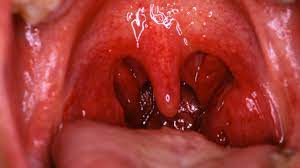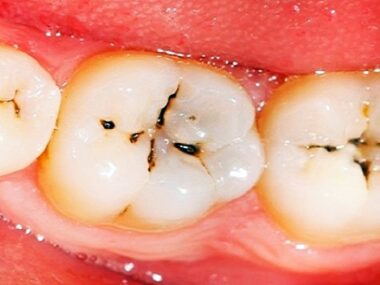Hiccups, medically known as singultus, are sudden, involuntary contractions of the diaphragm muscle followed by the rapid closure of the vocal cords, resulting in the characteristic “hic” sound.
While hiccups are usually transient and resolve on their own within a few minutes, persistent or chronic hiccups can be a source of discomfort and disruption to daily life. This essay delves into the complexities of chronic hiccups, exploring their underlying causes, common symptoms, and available treatment options.
Causes of Chronic Hiccups

Chronic hiccups are defined as hiccups that persist for an extended period, typically lasting for more than 48 hours or recurring frequently over a prolonged period. Several factors may contribute to the development of chronic hiccups, including:
- Nervous System Disorders: Conditions affecting the central nervous system, such as strokes, multiple sclerosis, or tumours, can disrupt the normal functioning of the nerves that control the diaphragm and lead to persistent hiccups.
- Gastrointestinal Disorders: Disorders of the gastrointestinal tract, such as gastroesophageal reflux disease (GERD), gastritis, or hiatal hernia, may irritate the diaphragm or stimulate the vagus nerve, triggering chronic hiccups.
- Respiratory Conditions: Respiratory conditions like pneumonia, asthma, or chronic obstructive pulmonary disease (COPD) can cause irritation or inflammation of the respiratory tract, leading to persistent hiccups.
- Medications: Certain medications, including steroids, benzodiazepines, chemotherapy drugs, and opioids, have been associated with the development of chronic hiccups as a side effect.
- Metabolic Disorders: Metabolic imbalances, such as electrolyte abnormalities, kidney failure, or diabetes, can affect nerve function and contribute to the onset of chronic hiccups.
- Psychological Factors: Psychological factors such as stress, anxiety, or excitement can disrupt the normal breathing pattern and trigger episodes of chronic hiccups in susceptible individuals.
Symptoms of Chronic Hiccups
Chronic hiccups may manifest with various symptoms, which can vary in severity and frequency among affected individuals. Common symptoms associated with chronic hiccups include:
- Frequent Hiccup Episodes: Individuals with chronic hiccups may experience persistent or recurrent episodes of hiccups that last for hours, days, or even weeks.
- Discomfort or Pain: Chronic hiccups can cause discomfort or pain in the chest, throat, or abdomen, particularly if the contractions of the diaphragm are forceful or prolonged.
- Disrupted Sleep: Chronic hiccups may interfere with sleep patterns, leading to insomnia or daytime fatigue due to frequent interruptions during sleep.
- Emotional Distress: The persistence of hiccups can cause emotional distress, anxiety, or embarrassment, especially if they occur in public or social settings.
- Difficulty Eating or Drinking: Severe or prolonged hiccups may interfere with the ability to eat or drink normally, leading to dehydration or malnutrition if left untreated.
Treatment Options for Chronic Hiccups
Managing chronic hiccups often requires a comprehensive approach that addresses underlying causes and provides symptomatic relief. Treatment options for chronic hiccups may include:
- Identifying and Treating Underlying Conditions: A thorough medical evaluation is essential to identify and address any underlying medical conditions or contributing factors that may be triggering chronic hiccups. This may involve diagnostic tests such as imaging studies, blood tests, or endoscopic procedures to evaluate the gastrointestinal or respiratory tract.
- Medications: Several medications may be used to manage chronic hiccups, including muscle relaxants, antipsychotics, proton pump inhibitors (PPIs), or prokinetic agents. These medications work by modulating nerve function, reducing irritation of the diaphragm, or suppressing gastric acid production.
- Nerve Blockade: In some cases, nerve blockade techniques such as phrenic nerve blocks or acupuncture may be considered to interrupt the nerve signals responsible for triggering hiccups.
- Behavioral Techniques: Behavioral techniques such as diaphragmatic breathing exercises, relaxation techniques, or biofeedback therapy may help modulate breathing patterns and reduce the frequency of hiccups.
- Surgical Interventions: In rare cases of refractory chronic hiccups that do not respond to conservative measures, surgical interventions such as phrenic nerve surgery or diaphragm pacing may be considered as a last resort.
Conclusion
In conclusion, chronic hiccups are a persistent and often distressing condition that can significantly impact an individual’s quality of life. While often benign, chronic hiccups may be indicative of underlying medical conditions or require medical intervention to alleviate symptoms and prevent complications.
By understanding the potential causes, recognizing common symptoms, and exploring available treatment options, healthcare providers can effectively manage chronic hiccups and improve outcomes for affected individuals.
Through a multidisciplinary approach that combines medical, pharmacological, and behavioural interventions, chronic hiccups can be addressed comprehensively, allowing individuals to regain control of their symptoms and resume their daily activities with greater comfort and ease.
Related Tags
Taiwo Olawuyi
Taiwo Olawuyi is a highly dedicated and passionate professional blogger, renowned for her ability to create captivating, informative, and engaging content in the realm of health and wellness. She holds a Bachelor's degree in Political Science from Olabisi Onabanjo University and a Master's degree in Adult Education from the prestigious University of Ibadan. Her profound passion for health and wellness, coupled with her unwavering dedication to her audience, serves as a constant source of inspiration and enlightenment for readers worldwide.










